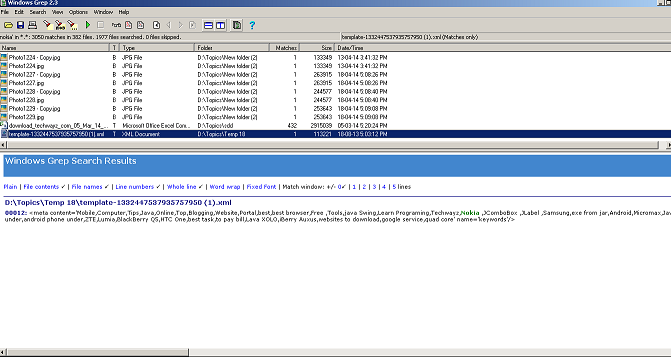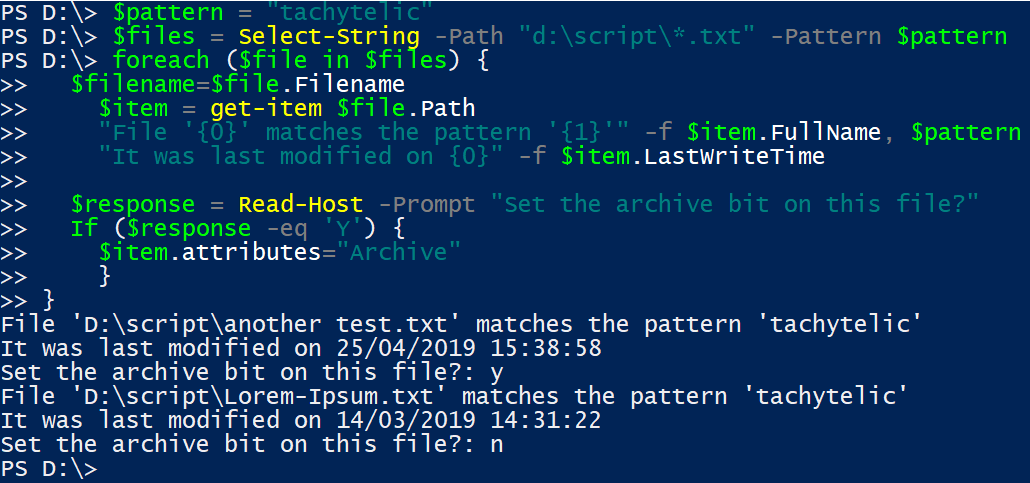
It can either be a variable that holds a text or an expression. InputObject: It denotes the text to be searched. It can accept wild card characters whereas pipeline input is not allowed.Ĩ. Include: This denotes the list of items that needs to be included for matching. It can accept wild card characters whereas pipeline input is not allowed.ħ. Exclude: This denotes the list of items that needs to be excluded from matching. It doesn’t accept pipeline input and wild card characters are also not accepted.Ħ. The other accepted values are ASCII, BigEndianUnicode, OEM, Unicode, UTF7, UTF8, UTF8BOM, UTF8NoBOM, UTF32. Encoding: It denotes the target files encoding type. It doesn’t accept pipeline input and wild card characters are not accepted.ĥ. Default value is the culture value of the current PS session. It was first introduced with PowerShell 7. To get a list of available cultures the Get-Culture -ListAvailable cmdlet can be used. Culture: It denotes the culture name to be used for matching purpose. It doesn’t accept pipeline input and wild card characters are not accepted.Ĥ. If two numbers are mentioned, first number denotes the number of lines before the match and the number of lines after the match is determined by the second number. If only a single number is mentioned, that number determines the lines before and after the match. Context: This captures the number of lines before a match is found and the number of lines that there after the match. It doesn’t accept pipeline input and wild card characters are not accepted.ģ. By default, the matches are case-insensitive. CaseSensitive: It denotes that a case sensitive match must be performed. It doesn’t accept pipeline input and wild card characters are not accepted.Ģ.

Without this, Select-String matches only the first matching pattern in a line.

AllMatches: This denotes that all matching patterns in each line must be returned. īelow are the different parameters of PowerShell Grepġ. Throw new Error("You must provide search criteria.Hadoop, Data Science, Statistics & others Var replaceSingleQuotes=false, printMatchesOnly=false, matchString, flagString, regex, argDx=0

Var args=WScript.Arguments, argCnt=args.Length, stdin=WScript.StdIn, stdout=WScript.StdOut This version works much more like how you would want the GNU version to work in Windows: //nologo //E:jscript %~f0 :eof */ I wrote this because getting the escape characters right in the GNU Win32 grep port was a real pain.
Windows grep windows#
I wrote a Windows alternative to grep using Hybrid Batch/JScript code. The syntax is different to that of grep, note, as is the regular expression capability. There are also PowerGREP, Bare Grep, grepWin, AstroGrep, and dnGrep, although these are all GUI programs not TUI programs. Tim Charron has a native Win32 version of a modified GNU grep, for example.

The programs run in Windows' native proper POSIX environment, rather than with emulator DLLs (such as cygwin1.dll) layering things over Win32. It comes in both x86-64 and IA64 flavours as well as x86-32.
Windows grep install#
(For Windows XP, one can download and install Services for UNIX version 3.5.) This toolkit has a large number of command-line TUI tools, from mv and du, through the Korn and C shells, to perl and awk.
Windows grep windows 7#
Less well known, but in some ways better, are the tools in the SFUA utility toolkit, which run in the Subsystem for UNIX-based Applications that comes right there in the box with Windows 7 Ultimate edition and Windows Server 2008 R2. Oft-mentioned are GNUWin32, cygwin, and unxutils.


 0 kommentar(er)
0 kommentar(er)
